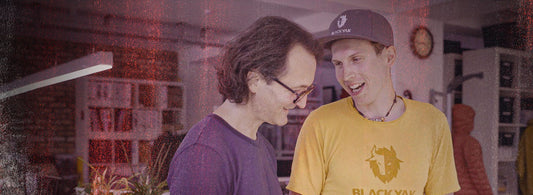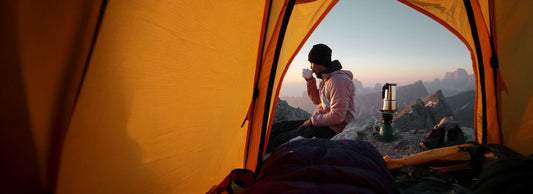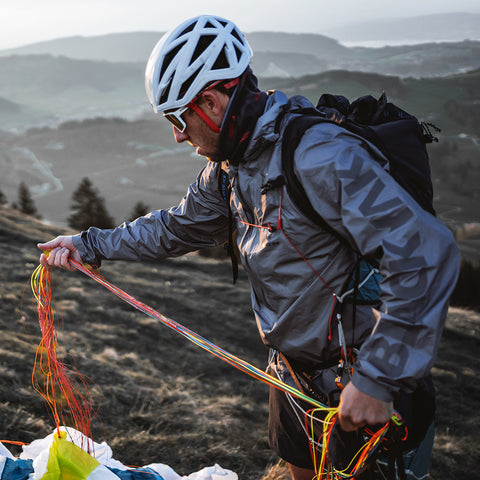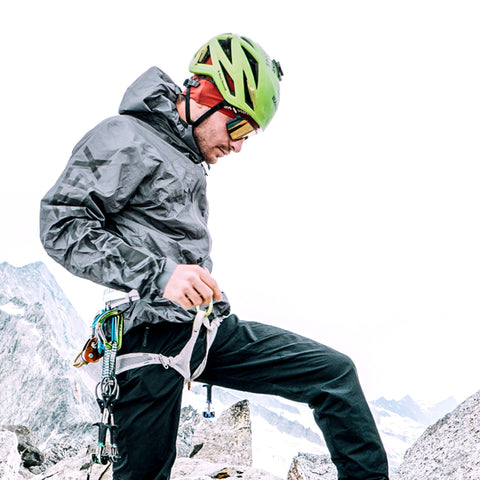I am convinced that great challenges are conquered in the preparation.
Preparation may be unspectacular, especially in the age of social media, where everyone asks you when the next expedition will begin, but it generates long-term performance and consequently also safety. The goal is not to reach the summit, the goal is to survive.
Since each expedition is unique and equipment and training are always evolving, it's a constant process to integrate new ideas into my training and establish routines in order to make everything feel and function comfortable in the big project afterwards.
For me, 80% revolves around three essential skills.
Mind
Without motivation, the capacity to suffer and resilience, no project will be successful. Particularly in winter projects are very challenging on this level. Darkness. Cold. Pain. When my mind feels weak, so does my body.
An important part of my preparation lies in regularly putting myself in uncomfortable situations where I actively use mental strategies & tactics. When climbing mountains as training, I consciously set intentions to establish routines or test some new tools.
One of my favorite tools is the question:
"What is the smallest possible step that will lead me towards my goal?"
This might mean taking the lighter out of my pocket in the bivouac, for example. This tool works best for me when it comes to camping and getting up early.

Training
A cold, morning shower is unpleasant, too. This routine builds stoic composure to face unpleasant situations, but it also builds brown fat - the body's heater. Brown fat burns calories and passively generates heat. At the same time, I also push waste products like lactate from the previous workout out of my body when my capillaries tighten.
The actual training itself adds up to 40 hours per week. It consists of climbing, strength training, hiking, cycling, running and stretching. Only a small part of it is anaerobic, i.e. without oxygen - as winter expeditions in high mountains are long-duration undertakings, the aim here is to be as aerobic as possible and so I train a lot with low intensity and long sessions.
In the training itself, it's important to listen to my body, plus I listen to my physiotherapist or coach to ensure I don't over-train causing more damage than progress. This can happen just after completing an expedition or with a cold/flu. It can also happen when I am simply too motivated and don't give my body enough time for a good night's sleep and recovery.
Training is flexible and for me comprises goals and intentions that I evaluate before they are executed. Each day is made up of ready-made building blocks and routines.

Equipment
Finding the right equipment, or if I don't find it, developing it, is a process.
I only take things on a project that I absolutely trust to work.
In the final stages of my training, I therefore take as much equipment as possible with me for training which I will need later on Everest, for instance. Of course, I can't walk around in the Alps with a down suit and 8000m boots, but I use shoes with stiff soles that come close to those boots. I also carry the same crampons, ice axe, helmet and jacket that I wear under the down suit.
My climbs have a route character as similar as possible to the actual project. Here, Mont Blanc du Tacul with its mixed routes is one of my frequent home areas for solo ascents, but many other 4000-metre peaks in the Alps are equally suitable. At this stage, I also adjust the weight of the backpack to the expected expedition weight.

At the end, everyone only sees the peak of the (ice) mountain, but the preparation is the biggest part.
Especially when I'm learning new things, in order to be good at something, I first have to be bad at it, things feel incredibly hard, there are moments when the world tells you how little talent I have or how unimportant talent is, because talent is overrated.
Building skills, on the other hand, is massively undervalued.
I am not who I am because I have worked hard - I am who I am because I have focused on building skills.








